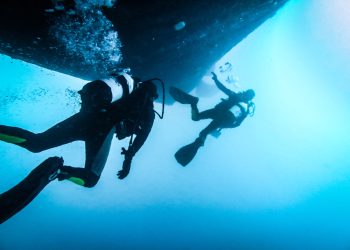There are numerous of questions arising concerning the term “quality”. Most of these questions are focusing on what quality is in practice and who actually defines the required items that make an organization quality compliant. Generally, quality refers to reliability, efficiency and good performance and seeks to reach all stakeholders’ satisfaction, as this is the major factor that defines the requirements on which the organization will finally focus on.
- Safety Management: Why SMS are important
- Safety Management: How can shipping companies become High Reliability Organizations?
- Safety Management: Safety Culture vs Safety Climate – What’s the difference?
- Safety Management: Measuring Maturity
- Safety Management: Why Quality is important among shipping organizations
- Safety Management: Why audits are important
- Safety Management: Learning about Safety Surveys
- Safety Management: Evaluating a Crew Resource Management training
- Safety Management: How post-incident reviews can be a useful tool
- Safety Management: How to define and measure KPIs effectively
As for the shipping organizations, quality is about all stakeholders’ satisfaction, but there is also another factor that it is very important to deal with: safety. In this case, quality sometimes conflicts with the safety requirements. A common example of this conflict is the customers’ demand of high speeds for sooner cargo delivery. However, from the scope of safety the requirement of higher speeds can be risky as sometimes safety practices are time-consuming. From that aspect, in order to balance between the two poles -safety vs quality- organizations should make clear the level of quality they offer, and where quality is limited due to safety requirements. In addition, quality is also costly and for some companies the adoption of a quality management may not be an easy job. Thus, shipping organizations are required to establish the quality level that can afford and is capable to maintain.
[adrotate banner="272"]
By the time a shipping company establish the level of quality it offers, will automatically establish the market in which it shall compete, until is ready to level up.
Quality Levels
Levels of quality management escalate as follows:
Level #1– Inspection
At this level inspections are taking place in order to ensure compliance to requirements. This level of quality management includes audits that aim to detect errors and faults in the management system. Despite the efforts been made to correct errors, there is no further investigation searching the root cause of these errors. This practice results in a continuous reappearance of the same errors and not any improvement is observed in company’s performance.
Level #2 – Quality Control
At this level the correction of errors is followed by an additional investigation to find out the root causes of occurred incidents. This tactic prevents reoccurrence of the same errors but still this mechanism is activated only after system failures, as there are not any preventive actions or risk assessments to protect the system from unfavorable incidents.
Level #3 – Quality Assurance
A company is at the quality level three or the “quality assurance level” when quality management has been adopted and demonstrated in written standards. Requirements are integrated in company’s SMS and its compatibility is displayed in documents.
Quality standards adopted by companies are established by the IMO, ISO (ISO 9000 for management quality) or can be found in the ISM Code requirements. Actions of the previous two levels are still occurred but there are also conducted internal audits by the company and by third parties, in order to ensure compliance with requirements. The rate of occurred errors can be reduced as these written procedures try to indicate the acceptable behaviors and actions to be followed by the staff.
Level Four – Total Quality
Total Quality Management (TQM) is standing on the other side of the previous levels as auditing is not the main tool. At this level, company’s efforts to meet quality requirements are mainly about learning how to improve performance and provide high quality services not only by searching for errors to be corrected but especially by creating opportunities for improvement.
Shipping Companies’ QMS
It is interesting to be noted, how quality management is approached by shipping companies. Firstly the ISM code itself has incorporated many of “quality” issues mostly concerning improvement and conformity. The adoption of a Quality Management System should be a strategic decision of any Company. This system is an integrated SMS and Quality system mixing both requirements (ISM & Quality). The Quality Management System helps the Company to improve its performance in general and to form an integral component of sustainable development initiatives. The design and implementation of a Company’s quality management system is influenced by the context of the Company and the changes in that context. It aims to:
- Understand customers’ requirements and ensure that is capable to meet these requirements.
- Maintain accordingly in order employees to receive the appropriate training regarding quality requirements.
- Keep records that the system complies with the quality requirements.
- Measure performance, analyze results and proceed the proper changes (if needed).
- Continually improve the performance and efficiency of Quality Management System.
Despite the challenges, implementing a quality management system can benefit any organization and help its overall performance. What is more, meeting the quality requirements can improve the quality level of the industry as a whole providing better services, satisfying the requirements of all stakeholders and respecting other important factors such as environment, health, safety and social responsibility.






























































Safety is built on the platform of quality. The Company working under the ISM Code must constantly strive to improve the “system performance”. The system being sociotechnical in nature. The system must be able to develop capacities in the company organization for performing successfully under varying conditions or resilient performance both ashore and afloat.
Carlos J. Franco – Consultant Engineer
I would like to congratulate the Safety4Sea team for their excellent initiative in making available such an amount of interesting safety related topics in your ISM Library on a daily basis. My comment refers to the article on Safety Management: Why Quality is important among shipping organizations. published under Maritime Knowledge dated 03/01/19.
A phrase is noted at the beggining of this article which reads ” …..quality sometimes conflicts with the safety requirements.” Analysing this statement in terms of Safety Management, and carefully going through the article´s content, an interpretativo is considered worth in order to clearly establish the correct relationship between safety and quality.
Preamble to the ISM Code specificaly says in its paragraph 6. that “The cornerstone of good safety management is commitment from the top. In matters of safety and pollution prevention it is the commitment, competence, attitudes and motivation of individuals at all levels that determines the end result.”
For every shipping organization an efficient management of safety matters is required in order to achieve satisfactory end results ensuring compliance with the Quality objectives and all Safety and Environmental Protection requirements as described in either their relevant TQMS and SMS´s or Integrated MARINE HEALTH, SAFETY, QUALITY, ENVIRONMENTAL AND ENERGY MANAGEMENT SYSTEM.
There is no room left for conflict between safety and quality. The efficient achievement of the safety objectives always remain as the top priority for shipping organizations and the whole maritime community, all other related safety matters keep subordinated to that purpose, quality matters included. Any possible conflict between quality and safety has to be considered as a serious breach or structural deviation in the Organization´s Management System.
The common example given in this article where “….customers demand higher speed for sooner cargo delivery.” is rather a commercial, contractual matter which needs to be seen separate from quality and safety requirements as such. Meaning of higher speed is quite different from safe speed on route, which is limited by sea and weather conditions, fuel consumption, vessel´s load condition, nature of cargo, etc.
Safety and Quality need to be always in harmony for success.
Good info which is worth reading it. Thanks
Regarding to the topic of QUALITY VS SAFETY, is very importan to know and consider both terms – titles in order to state clearly each one of them.
Background,
1.- ISM CODE born and is estabished in accordance with the ISO family, ISO 9000 SPECIFIC 9002.
2.- Structure and documentatation of ISM
CODE is bases on the PHIRAMYDE of ISO 9002.
3.- SAFETY AND QUALITY WORKING TOGETHER.
ANDRES HDEZ Y CANDANEDO
CHIEF ENGINEER/ SENIOR MARINE SURVEYOR/CONSULTOR
Its a continuous challenge and We, seamen , are always on between…interest, marketing, charter parties and so on, but above all must be always the Safety and applications of all rules and regulations, always be in mind that were made on previous errors , to improve the future